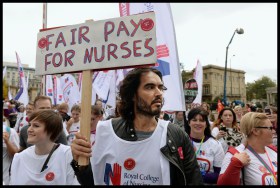From Republican wins in the midterm elections and the 1-year anniversary of Typhoon Haiyan in the Philippines, to U.S. troops returning home from Afghanistan and a giant “fallstreak” hole in the sky over Australia, TIME presents the best pictures of the week.






